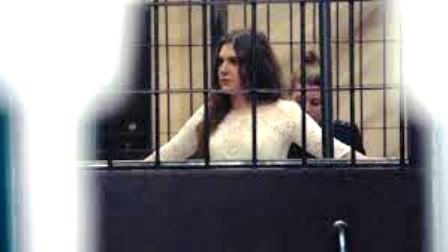


Magnificent7 Belgrade 2022
“We haven’t seen so poetic documentary for a long long time! Beautiful shots, true beauty of the nature and people, true beauty of the documentary!”
A visit “behind the scene” is this email text from from Svetlana and Zoran Popovic to me, who had asked the festival directors to watch “The Wind that Moves Us” by Pere Puigbert from Catalonia, Spain.
Just one example of our many exchanges of comments during a selection process, this time for the 18th edition of Magnificent7 that I am proud and grateful to be part of.
I put that to tell you, dear Belgrade audience, that we who select have promised each other that we film lovers must be full of enthusiasm, joy and respect before we say “yes, we must have that film”, “yes, we must have this film for you the audience, who deserve to be treated with the best of the best”.
The camerawork of Pere Puigbert in “The Wind that Moves us” is excellent, nature and man, every image is a composition as are the ones of Austrian master Nikolaus Geyerhalter, who returns to the festival with his stunning “Matter Out of Place” about rubbish here, there, and everywhere on the planet, we live. His film is a true proof of the director’s aesthetic ambition to sometimes even turn the unattractive scenes of reality into surrealistic paintings while at the same time as he sends this message: Shame on us, what can we humans do better?
People… documentaries about us who have different lives, different opinions and who like to express them, to open up if we are asked in a gentle way. By, for instance, a man on a balcony. So happy that Pawel Lozinski will visit the festival with his awarded “Balcony Movie” that he shot over a couple of years catching moments of joy and grief pointing his camera from his balcony to those passing by asking questions about how they feel, how they live, what are their plans for the day. Crazy Poetry? Indeed! Existential and Philosophical. Absolutely!
Philosophy, Yes… “Young Plato” by Irish Declan McGrath and Neasa Ni Chianáin is a film from Belfast, a superb observational documentary, uplifting and hopeful from a city with a bloody past AND with a charismatic teacher, a fan of Elvis Presley, who take care of the kids with love. Teaching love. Oh, they know how to talk, these kids, and welcome back to Neasa Ni Chianáin and David Rane who were here with “In Loco Parentis”.
Two films are shot during the Covid pandemic: “Zoo Lockdown” by Andreas Horvath and “A Provincial Hospital” by Ilian Metev, Ivan Chertov and Zlatina Teneva.
Who has not dreamt of being in a zoo when there are no visitors? To observe the animals? Do they behave in a different way, are they happy that nobody watches them all the time or do they miss the curious tourist glances? It’s a lovely film and we hope many will bring along (bigger) kids to the cinema to watch the film, that was made when the Salzburg Zoo was closed because of Covid-19.
Ilian Metev, whose “The Last Ambulance” we enjoyed years ago at the festival, is back with his film colleagues Chertov and Teneva. Metev himself was in lockdown in London while the film was shot but the material provided again included a doctor – doctor Popov, who with humour and warmth encourage the covid patients at the ward to cheer up and decide to live on. The film is, as we have witnessed multiple times at the festival, crossing the line from reportage to become a documentary with great, caring protagonists who work under – an understatement – unbelievably hard conditions.
Going behind the news, the dry documentation facts, is “The Treasures of Crimea”, a documentary thriller, simply. With footage from court rooms, with a focus on to whom belong the treasures that came from a Crimea that while the exhibition took place in the Netherlands was annexed by Russia in 2014. Where to send back the treasures? Dutch author Oeke Hoogendijk is fantastic to make a dramatic story out of the controverse – there are tears and laughter and wonderful protagonists.
It is not enough to have interesting and fantastic stories. You have to know how to tell them, how to use the cinematic tools at your disposal – the French call it to be an “auteur”. We offer you 7 documentary authors; we hope that our excitement will be yours as well. Love is all there is!
Tue Steen Müller
Copenhagen
September 1, 2022
